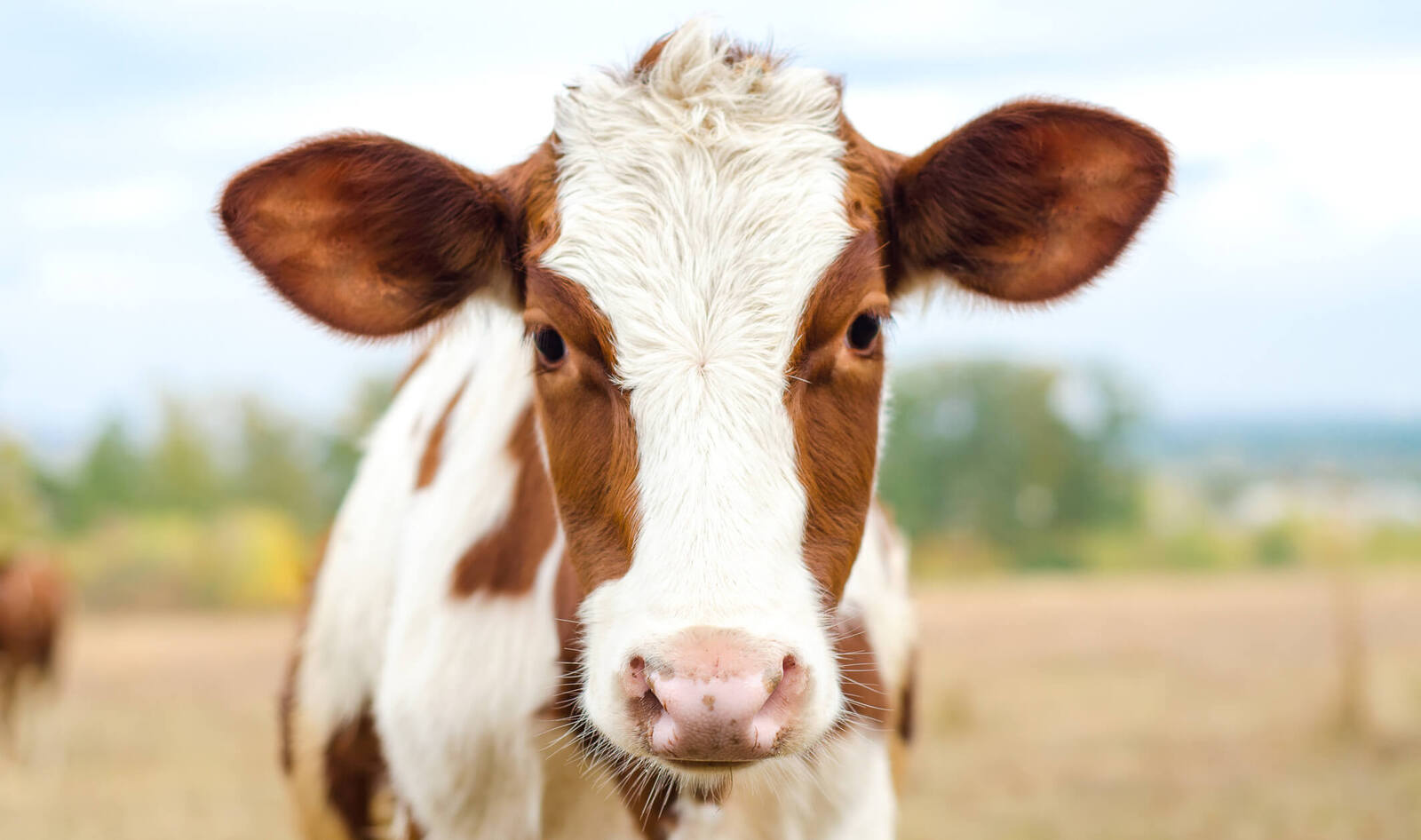
Very few of us have gotten far in life without feeling some form of physical pain. Although many of us wish for a pain-free life, the sensation serves an important purpose: to send the message that something is wrong so your body can react and prevent further damage. Think of the times you’ve stubbed your toe. Chances are, you immediately recoiled from the surface that caused your suffering. Thanks to an abundance of evidence, we can answer the question “Do animals feel pain?” with a resounding yes. And, the ways in which they feel pain are very similar to how humans do.
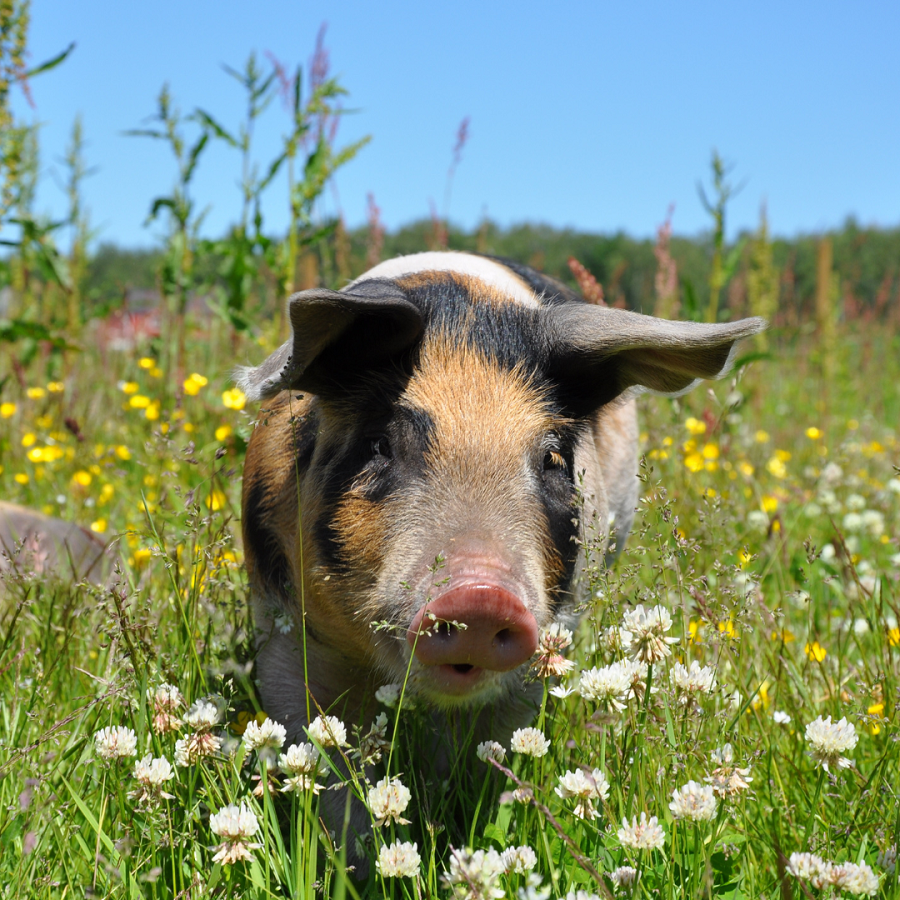 Canva
Canva
Do animals feel pain? Here’s how we know
Although animals can’t talk to us by striking up a casual conversation, they are perfectly capable of communicating happiness, trust, fear, and pain. Just like us, animals may cry out when they feel pain, like a cat who yowls when their tail is stepped on, or they might nurse their wound, like a wild wolf licking their injury and becoming more reclusive.
It’s so well-accepted that animals feel pain that there are welfare laws all around the world to protect them from needless suffering. “There’s absolutely no doubt that farm animals feel pain in a way that’s very similar to humans,” explains Gwendolen Reyes-Illg, DVM, MA, and veterinary advisor to the Farm Animal Program at the Animal Welfare Institute (AWI). “We know that animals have the same pain receptors and their nervous systems have the same structure as humans.”
When a human feels pain caused by external injuries, such as touching a hot stove, the body responds in a few ways. First, reflexes will cause us to pull away from the source of the damage. Next, sensory neurons called nociceptors send information about the location and intensity of the injury along the spinal cord and to the brain, resulting in the sensation of pain. Then, the brain might release the feel-good chemical dopamine to counter the unpleasant feeling.
There’s also an emotional component that may affect how you react to the pain—someone getting a tattoo, for example, may feel pain, but the way that it makes them feel differs from an athlete that sprained a muscle. Several studies have shown that the response to unwanted pain works the same way in animals. “The changes to their brain waves and physiology are very similar to what you would find in humans,” says Reyes-Illg.
Despite knowing that animals feel pain, not all of their pain is treated the same way. When a cat or dog undergoes spaying or neutering, they are given anesthesia to ensure that they experience as little discomfort as possible.
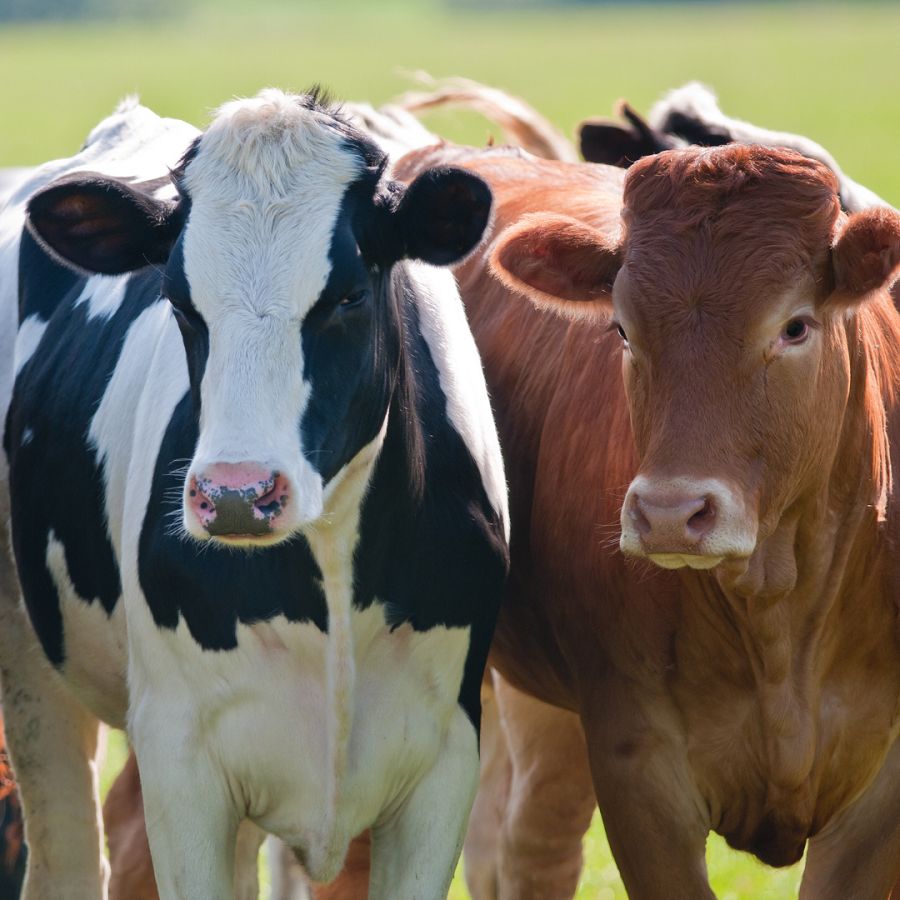 Canva
Canva
But, in the United States and in many countries worldwide, farmed animals like pigs, hens, and cows, aren’t given the same courtesy. For them, the absence of painkillers is practically universal despite how common painful procedures are. Hens have their beaks trimmed while turkeys’ toes are trimmed. Piglets born into the pork industry have their tails docked, their needle teeth (baby teeth that pigs are born with) cut, their ears notched, and males are castrated.
Unfortunately, the pain does not end once the animal’s injury is healed. Research suggests that animals who have undergone amputation, such as tail docking in pigs and dogs, may suffer from chronic pain where the body part used to be. This is due to the formation of neuromas, which occurs when the severed nerves at the amputation site attempt to heal, but cannot. These neuromas may cause pain for weeks, months, or up until the end of the farm animal’s short life.
Why don’t farmed animals get painkillers?
According to a survey released by AWI last summer, nearly half of consumers do not know that painful procedures are standard practice for farm animals. But, 87 percent responded that animals should be given pain relief if scientific research shows that they experience significant pain. This leads to the question: if people believe that animals raised for food deserve pain relief, then why does their pain continue to go unrecognized and untreated?
“On a federal level in the US, while animals are on a farm, there’s virtually no protection and nothing requiring the use of pain medication,” says Reyes-Illg. Research shows that certain medications are effective and could improve the welfare of farm animals. But, there are a number of barriers from the government, the industry, trade associations, veterinarians, and farmers that stand in the way of this becoming the standard practice.
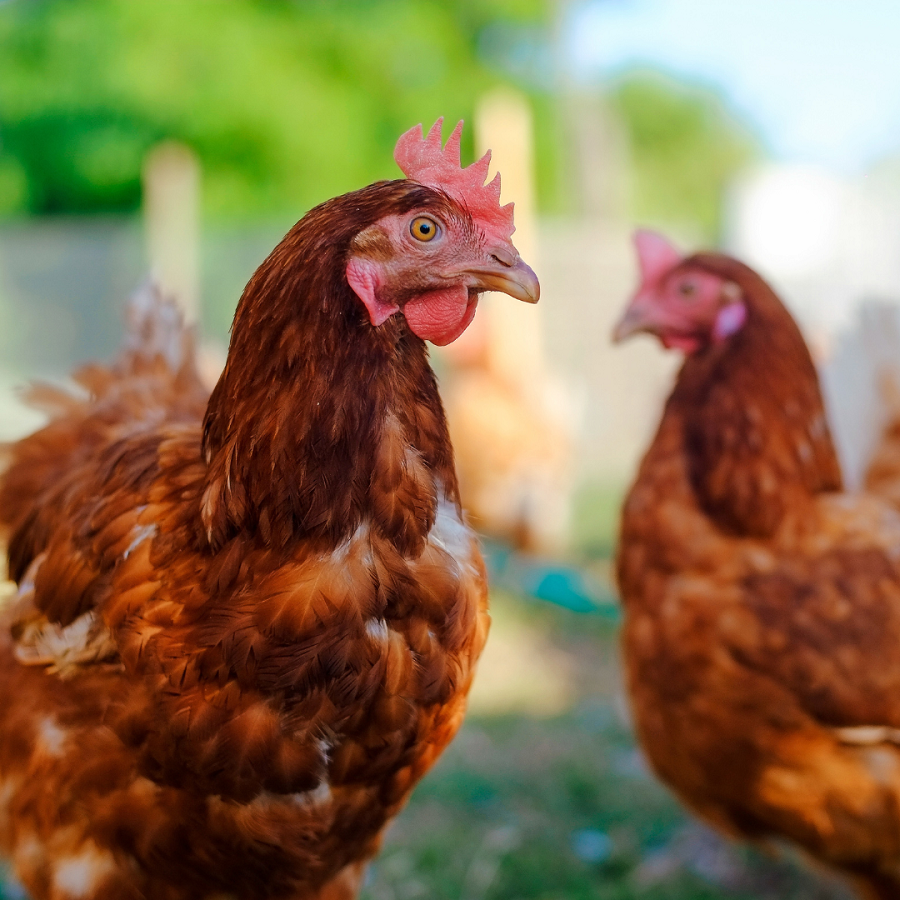 Canva
Canva
Any pain relief drug administered to animals must be approved by the Food and Drug Administration (FDA). To add another layer of complication, drugs can only be given to treat its approved use. For example, the anti-inflammatory drug flunixin transdermal is approved to control fever and reduce pain from foot rot associated with bovine respiratory disease in cattle, but it cannot be used to treat castration pain. Pain relief drugs may also only be administered under the oversight of a veterinarian.
“A lot of animals raised for food don’t have regular contact with a veterinarian, who might only get called if there’s a problem,” says Reyes-Illg. “Because there are no FDA-approved drugs for treating pain caused by procedures like castration, dehorning, and tail docking, veterinary oversight is legally required when pain medications are used. Prescribing these drugs for farm animals increases veterinarians’ liability. If they give a drug that the FDA hasn’t approved for a particular use, and drug residues are detected in the meat when the animal goes to slaughter, the veterinarian is the one who’s held responsible.”
How can the industry make things better?
From the vegan perspective, an ideal world wouldn’t see animals raised en-masse as commodities for consumption. But, there are ways to push for better welfare standards. The reason why so many animals raised for food undergo painful procedures comes down to the environments in which they’re raised.
About 99 percent of farmed animals in the US live on factory farms—industrial-sized operations that raise large numbers of animals to maximize profit and minimize resources—according to estimates by the non-profit think tank, the Sentience Institute. These animals are kept in intensive confinement where their movements are severely prohibited, which can lead to aggressive behavior towards other animals, including pecking, scratching, and biting.
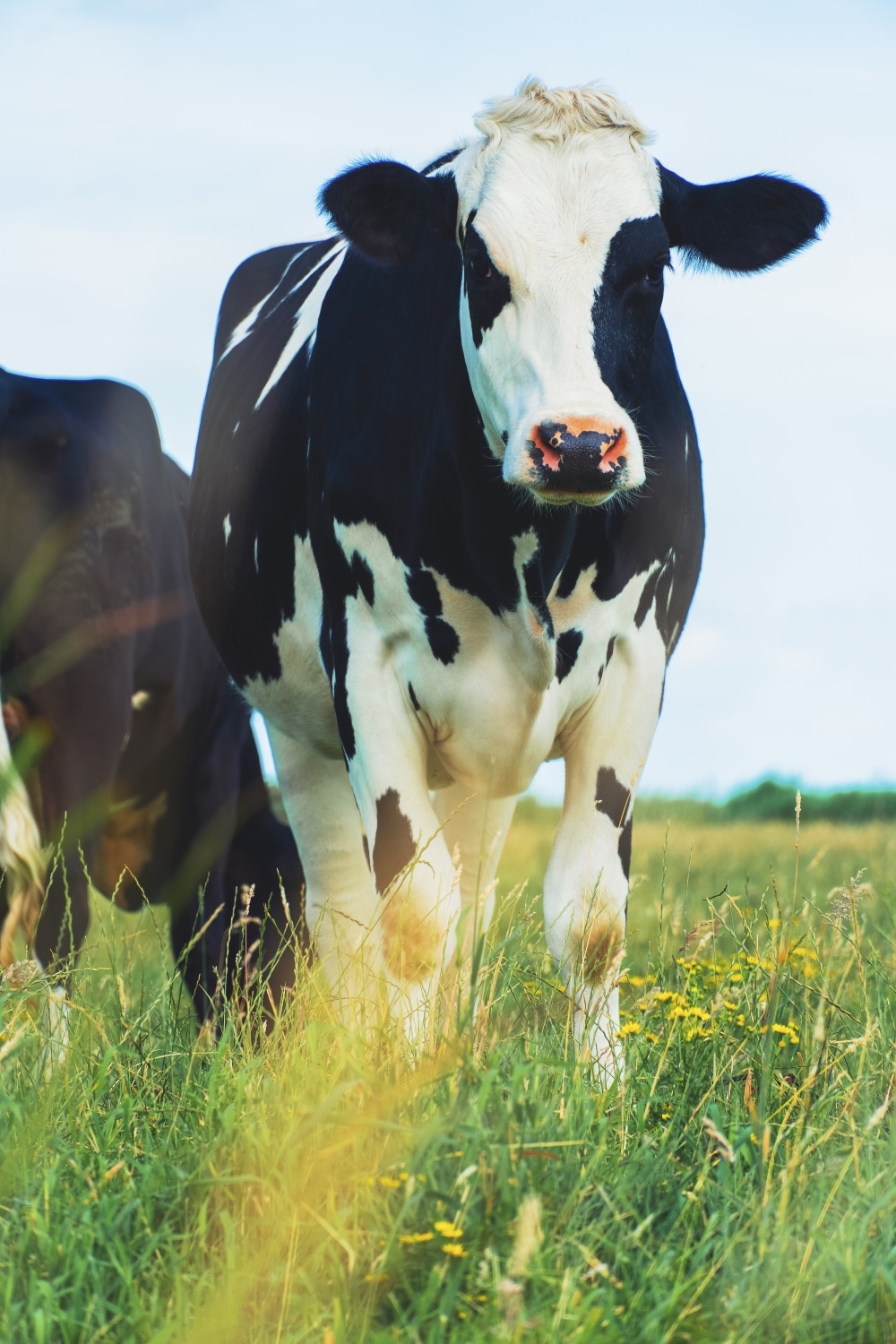 Unsplash
Unsplash
Changing the way that factory farms operate would improve life for these animals, explains Reyes-Illg. This includes giving animals enrichment that allows them to exhibit natural behaviors. In hens, this includes the space to peck, scratch, perch, and dust-bathe.
“It’s a similar situation with tail docking in piglets,” she says. “Pigs are very intelligent, inquisitive, curious animals that have a strong drive to root around and explore their environment. But if they’re in a completely barren environment [like a factory farm], they have hours and hours with nothing to do. Sometimes these farms see outbreaks where one piglet starts biting and pretty soon, it’s rampant to the point where some of them die from infection.”
This can be mitigated to an extent by improving the conditions that the animals live under and by granting them better protections under the law, which groups like AWI work towards on both a federal and state level.
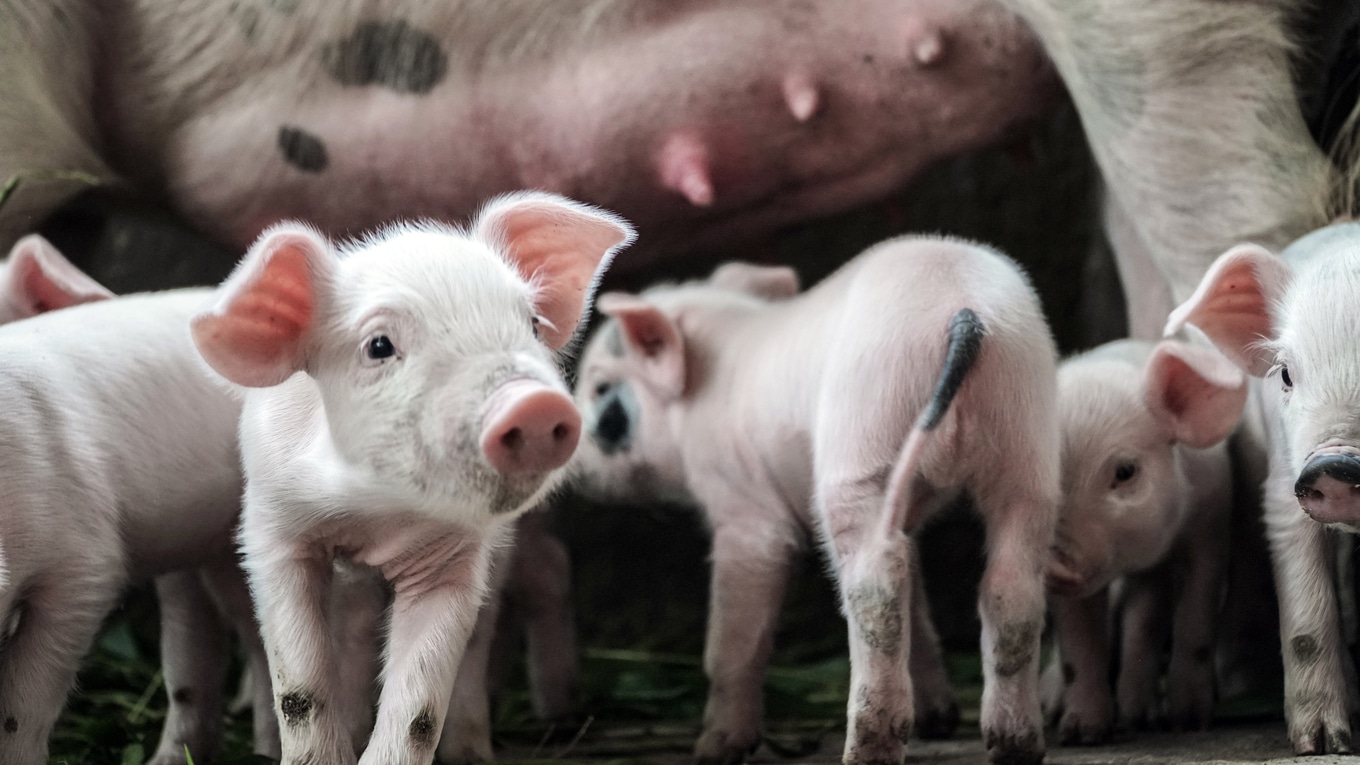 Unsplash
Unsplash
For example, in January 2021 a consortium of researchers led by the American Association of Swine Veterinarians received a $650,000 grant from the US Department of Agriculture’s National Institute of Food and Agriculture to validate and measure the pain caused by piglet castration in order to establish a framework for addressing pain management. Collaborators on the project include the FDA, Smithfield Foods, and the National Pork Board.
Another option would be to greatly reduce the volume of animals confined to a farm. But to make that work, the industry would have to make big changes and it would require society to greatly reduce its consumption of animal products.
If the disregard for animals by the industry at large has given you pause about your personal eating habits, then you might consider eliminating animal products altogether. (See our vegan starter guides here.) In addition to that, you can advocate for incremental change that will make life better for farmed animals by learning more about what kind of welfare laws have been introduced in your state and asking your local legislators to support them.
This post was originally published on VegNews.com.